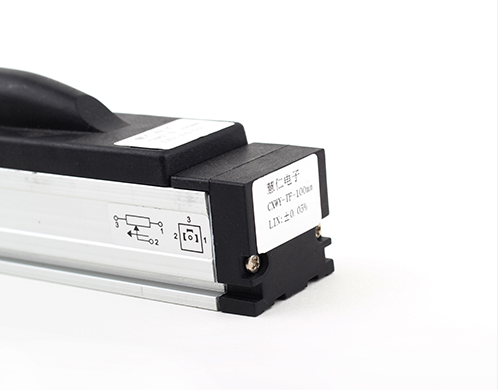

Company name: zhejiang huiren electronics co., LTD
Contact person: ms xu
Telephone: 0572-2207633
Phone: 18072606105
Email address: hrsales1@hzhuiren.com
Website: sd43gh.cn
Address: 1818 gangnan road, economic and technological development zone, huzhou city, zhejiang province

1. The resistors of the rotary potentiometer are mostly made of polycarbonate synthetic resins, and should avoid contact with the following items: ammonia, other amines, alkaline solutions, aromatic hydrocarbons, ketones, lipid hydrocarbons, strong chemicals (high ph), etc., or their performance will be affected.
2, the potential of the terminal should avoid the use of water-soluble flux during welding, otherwise it will contribute to metal oxidation and moldy materials; Avoid using poor quality solder. Poor soldering may cause soldering difficulties, poor contact or circuit break.
3. If the welding temperature of the potentiometer terminal is too high or the welding time is too long, it may cause damage to the potentiometer. Pin type terminal welding should be at 235 ℃ + 5 ℃, 3 seconds to complete, the welding should be more than 1.5 MM from the potentiometer ontology, do not use when welding the wear PCB solder flow; Welding line terminal welding should be at 350 ℃ + 10 ℃, 3 seconds to complete. And the terminal should avoid heavy pressure, otherwise easy to cause bad contact.
4, when welding, rosin (flux) into the printing press plate height adjustment is appropriate, should avoid flux into the potentiometer, otherwise it will cause brush and resistance body contact bad, INT, noise bad phenomenon. The rotary potentiometer is best used in the voltage adjustment structure, and the wiring mode should choose "1" foot grounding; The use of current-adjusted structures should be avoided as the contact resistance between the resistance and the contact sheet is not conducive to the passage of large currents.
5, potentiometer surface should avoid condensation or the existence of water droplets, avoid the use of damp places, to prevent insulation deterioration or cause a short circuit.
6. When installing the "rotary" potentiometer, the strength should not be too tight to avoid damaging the screw teeth or bad rotation; When installing "iron shell type" potentiometer, avoid to use too long screw, otherwise may hinder the movement of the handle, or even directly damage the potentiometer itself.
7. In the process of turning the knob on the potentiometer sleeve, the used thrust shall not be too large (it shall not exceed the parameter index of the axial pushing and pulling force in the specification), otherwise it may cause damage to the potentiometer.
8. The operating force (rotation or sliding) of the potentiometer will become lighter with the increase of temperature and become tighter with the decrease of temperature. If the potentiometer is used in low temperature environment, it needs to be explained so as to adopt special low temperature resistant grease.
9. The potentiometer shaft or slider should be designed to be as short as possible. The shorter the shaft or slider length, the better and more stable the handle. On the contrary, the longer the bigger the shaking, feel easy to change.
10, rotating potentiometer can withstand the power of carbon membranes surrounding temperature is 70 ℃, when using a temperature higher than 70 ℃ could lose its power.